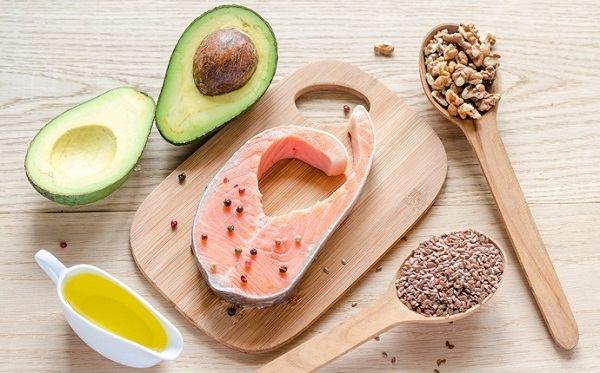Hippocrates famously said, "Let food be thy medicine, and medicine be thy food." It's true that food can do much more than provide energy. And when you're sick, eating the right foods is more important than ever.
Certain foods have powerful properties that can support your body while it's fighting an illness.
They may relieve certain symptoms and even help you heal more quickly.
These are the 5 best foods to eat when sick.
1. Chicken Soup
Chicken soup has been recommended as a remedy for the common cold for hundreds of years — and for good reason (1).
It's an easy-to-eat source of vitamins, minerals, calories, and protein, which are nutrients your body needs in larger quantities while you're sick (2).
Chicken soup is also an excellent source of fluids and electrolytes, both of which are necessary for hydration if you're making frequent trips to the bathroom.
Your body will also need even more fluids if you have a fever (3).
What's more, one study found chicken soup to be more effective at clearing nasal mucus than any other liquid studied. This means it's a natural decongestant, perhaps in part because it gives off hot steam (4).
Another reason for this effect is that chicken contains the amino acid cysteine. N-acetyl-cysteine, a form of cysteine, breaks apart mucus and has anti-viral, anti-inflammatory and antioxidant effects (5, 6).
Chicken soup also inhibits the action of neutrophils, which are white blood cells that may cause symptoms such as coughing and a stuffy nose.
Chicken soup's ability to inhibit these cells could partially explain why it is so effective against some cold and flu symptoms (1).
 Bottom Line:
Chicken soup is a good source of fluids, calories, protein, vitamins and minerals. It is also a natural decongestant and may block cells that cause coughing and a stuffy nose.
2. Broths
Similar to chicken soup, broths are excellent sources of hydration while you're sick.
They're full of flavor and can contain calories, vitamins and minerals such as magnesium, calcium, folate and phosphorous (7, 8).
If you drink them while hot, broths also have the wonderful benefit of acting as a natural decongestant because of the hot steam (4).
Drinking broth is a good way to stay hydrated, and the rich flavors can help you feel satisfied. This is especially helpful if your stomach is unsettled and you are unable to keep down solid foods.
If you're salt-sensitive and buy broth from the store, be sure to buy a low-sodium variety as most broths are very high in salt.
If you're making broth from scratch, it may have even more benefits — including a higher calorie, protein and nutrient content.
Many people rave about the benefits of bone broth and claim it has many healing properties, although currently there are no studies on its benefits (8).
Bottom Line:
Drinking broth is a delicious and nutritious way to stay hydrated, and it also acts as a natural decongestant when hot.
3. Garlic
Garlic can provide all sorts of health benefits.
It has been used as a medicinal herb for centuries and has demonstrated antibacterial, antiviral and anti-fungal effects (9, 10).
It can also stimulate the immune system (11).
Few high-quality human studies have explored the effects of garlic on the common cold or flu, but some have found promising results.
One study found that people who took garlic got sick less often. Overall, the garlic group spent about 70% fewer days sick than the placebo group (12).
In another study, people taking garlic not only got sick less often, but they got better 3.5 days faster than the placebo group, on average (13).
Additionally, several studies showed that aged garlic extract supplements can enhance immune function and decrease the severity of colds and the flu (14).
Adding garlic to chicken soup or broth can both add flavor and make them even more effective at fighting off cold or flu symptoms.
Bottom Line:
Garlic can fight bacteria, viruses and stimulate the immune system. It helps you avoid illness and recover faster when you get sick.
4. Honey
Honey has potent antibacterial effects, likely because of its high content of antimicrobial compounds.
In fact, it has such strong antibacterial effects that it was used in wound dressings by the ancient Egyptians, and is still used for this purpose today (34, 35, 36, 37, 38).
Some evidence suggests that honey can also stimulate the immune system (38).
These qualities alone make honey an excellent food to eat when sick, especially if you have a sore throat caused by a bacterial infection.
Many studies show that honey suppresses coughing in children. However, remember that honey should not be given to children under 12 months old (39, 40, 41, 42, 43).
Mix about half a teaspoon (2.5 ml) of honey with a warm glass of milk, water or a cup of tea. This is a hydrating, cough-soothing, antibacterial drink (43).
Bottom Line:
Honey has antibacterial effects and stimulates the immune system. It can also help relieve coughing in children over 12 months of age.
5. Bananas
Bananas are a great food to eat when you're sick.
They're easy to chew and bland in flavor, but also provide a decent amount of calories and nutrients.
For these reasons, they are part of the BRAT diet (bananas, rice, applesauce, toast) that is often recommended for nausea (55).
Another big benefit of bananas is the soluble fiber they contain. If you have diarrhea, bananas are one of the best foods you can eat because the fiber can help relieve diarrhea (56, 57, 58).
In fact, some hospitals use banana flakes to treat patients with diarrhea (59).
Bottom Line:
Bananas are a good source of calories and nutrients. They can also help relieve nausea and diarrhea.
READ ALSO: 8 foods that can boost your sex drive





